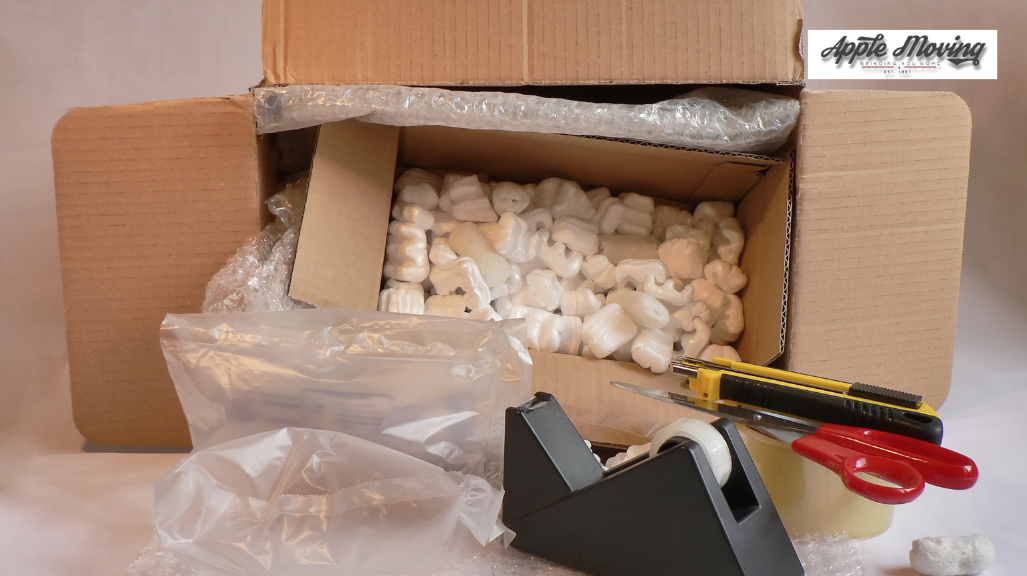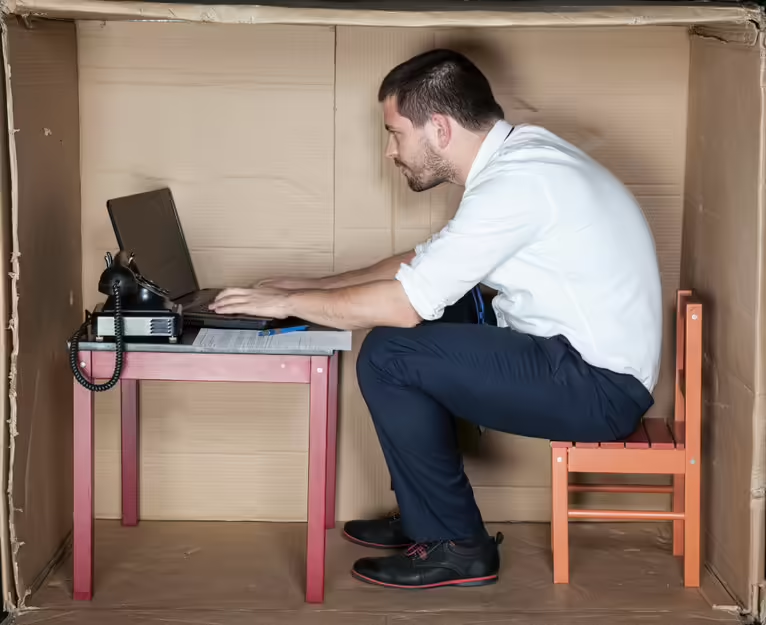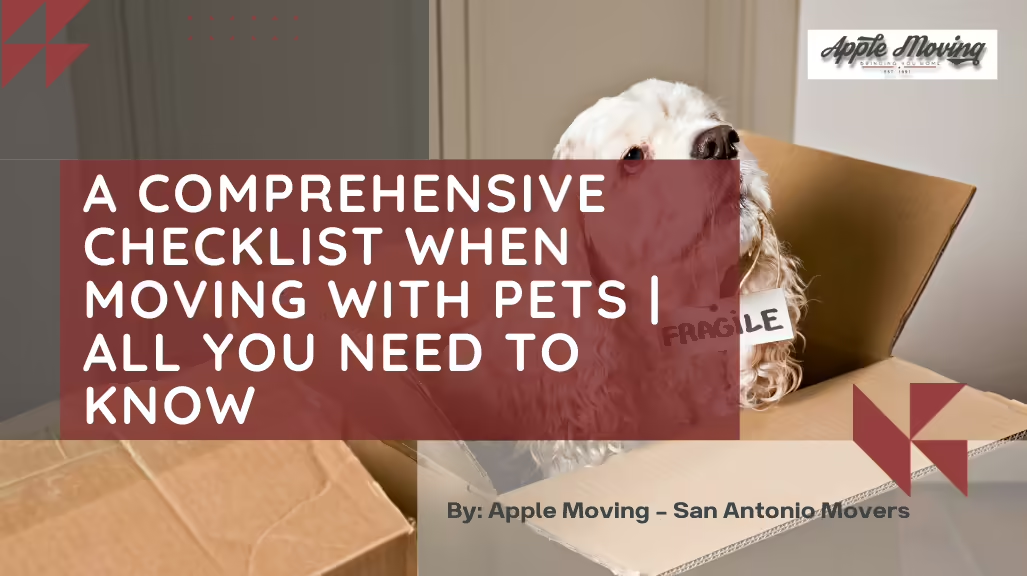Moving can be one of the most exciting things, but it could also be a nightmare if you don’t prepare accordingly.
There are many things you must keep in mind before moving. Forgetting even the smallest detail can stress you out like nothing else.
Moving isn’t always easy, especially if you’re moving out of state. Thankfully, there are a few things you can do to make sure the process goes as smoothly as possible.
This page will walk you through the entire process of preparing to move. By the time you finish reading, you’ll be ready to start.

Why Is Moving So Stressful?
Moving is considered, by many, one of the most stressful things to go through. Even if you hire professional movers, there are too many things to cover if you want to move successfully.
The first reason why moving is stressful is that it represents a time of major change. Deciding to move isn’t easy; the process usually comes with plenty of financial stress and unexpected setbacks.
You could offset some of these setbacks by getting help from your friends and family. Even then, you may still have to deal with a few details, such as making sure that your moving boxes don’t break and your items aren’t damaged by the time you arrive at your new property.
It’s always a great idea to make a checklist of what you must do before moving and keep track of it. This way, you’ll save a lot of time and possibly money on the process.
When Should You Start Preparing for the Moving Process?
The sweet spot is two months before you move. Even though some claim that one month is enough, it’s always better to have that extra time.
Two months is enough to declutter your home, clean up, and start packing.
There’s no set rule on when you should start packing and planning your moving process. However, the earlier you begin, the less stressed you’ll be.
How to Get Started and Prepare to Move
Your moving process will be separated into three main categories:
- Budget
- Organization
- Packaging
As long as you take care of one item before going into the next, you’ll have an easier time dealing with everything.
Since there are too many things to keep in mind simultaneously, we made this list of all the tips you can follow to make your moving experience as easy as possible.
#1 – Set a Budget
Setting your budget should be the first thing you do. The fewer services you hire, the more money you’ll save. However, remember that those extra expenses will often translate into more peace of mind for you and your family.
The budget you set will probably impact your moving timeline. If you were to hire professionals, you can expect the moving process to be much quicker. On the contrary, you would have to deal with everything yourself or with help from friends and family, which can take some extra time.

If you’re moving yourself, some of the factors you must consider for your budget include:
- Gas
- Moving Equipment
- Furniture Insurance
- Packing Materials (packing tape, boxes, packing paper, bubble wrap, etc.)
On the other hand, if you’re hiring professionals, you can consider the following:
- Moving Fees
- Packing Fees
- Unpacking Fees
- Upcharges
- Courtesies (Tips, food, beverages, etc.)
You don’t have to get all these services if you don’t want to, though. If you want to save money, you can deal with all the packing/unpacking yourself and leave the moving to the experts.
#2 – Get Rid of What You’re Not Taking with YouThis is the part where you’ll declutter your home. If you want to make things more efficient, you must evaluate how much stuff you want to move to your new home.
It may not seem like it, but we often store unnecessary things and forget to eliminate them.
You can make things easier by creating two piles of items. One of the piles will be for the items you’ll keep, and the other for the items you’ll toss away.
It’s important to note that you don’t have to throw everything away. If there are any items you won’t use but are in good condition, you may consider selling or donating them. You could even earn a bit more money with them.
Sorting through everything first and creating an inventory list will save you a lot of time later. You’ll avoid having unwanted items on “moving day,” and you will also probably have more space in the moving truck.
#3 – Decide If You’re Hiring a Moving Company or Going DIY
Once you’ve set your budget and created a checklist of everything you must do, it’s time to decide whether you can handle the moving process yourself or are better off hiring professionals.
The main benefit you’ll get from hiring professional movers is that you won’t have to deal with the two most time-consuming parts of the process, which are packing and moving. Once you outsource those tasks to someone else, you can focus on other details of the process.
Of course, you may want to consider doing everything yourself if you don’t have enough budget. However, remember that you’ll still have to invest in many things even if you don’t hire movers. You can talk to the moving company to see if it has plans that could suit your budget better.
#4 – Choose Your Packing Materials Wisely
You could skip this process if you hire movers to pack your things. Otherwise, you will have to list the packing materials you’ll need.
Some of the materials that shouldn’t be missing in your list include:
- Tape
- Scissors
- Sharpie
- Dolly (if you have big furniture or appliances)
- Trash bags
- Furniture pads
- Bubble wrap
- Toolkit for disassembling furniture pieces

Besides your packing materials, you should also pack an “essentials” bag for the moving process. This bag will have the items you need while you move:
- Documents
- Chargers
- Toiletries
- Medications
- and Change of Clothes
#5 – Consider Packing Yourself
Packing is probably even more stressful than moving. If you don’t do it correctly, you risk getting your items damaged.
Even though you could ask professionals to take care of that for you, that could cost more than you are willing to invest.
The great news is that if you have enough time, you can pack everything as long as you plan accordingly.
Using cardboard boxes will be the best option to get everything stored, although you could also use suitcases to store non-fragile items like clothes.
If you’re packing yourself, we suggest you stay organized during the whole process. Here are a few tips you can follow:
- Pack Your Rooms Separately: Don’t try to pack all your rooms at the same time. You’ll get confused and mislabel items. Start with one room, and don’t start the next one until you finish the first one. Remember to label your boxes correctly to avoid making mistakes.
- Separate Heavy from Light Items: You can store several light items in a single box to make things easier. However, consider using a smaller box if you’re storing a heavier object. Small boxes are much easier to carry than regular ones. Even though you would have to deal with more boxes, it’ll make the process smoother. Don’t try to pack several heavy things in the same box. It will be too hard to pick up and move.
- Cover Your Valuables in Bubble Wrap: If you have any fragile or valuable items, cover them in bubble wrap. This will prevent those items from getting scratched or damaged during moving. If you cover these in bubble wrap, load them into the truck carefully.
- Leave Your Tools for Last: Don’t store your toolkit once you’re finished packing your stuff. You may need it again when you arrive at your new home.
#6 – Transfer Your Utilities
Your new house should be ready by the time you arrive. If you don’t want to arrive at a dark and cold home, contact all your utility providers beforehand to schedule a transfer/reconnection.
What happens if one of your utility providers doesn’t have service at your new location? You must quickly call a new company and set everything up before you move.

#7 – Change Your Address
Remember to change your address with the United States Postal Service (USPS) before you move. This step is easy to forget, and if you don’t do it, you will stop receiving mail until you fix the issue.
You can change your address in person if you feel more comfortable. On the other hand, you could consider the following methods:
- Phone
- Online
#8 – Gather Your Documents
You should always have a folder with all the essential documents needed while moving. The most important document will be, of course, your checklist. It will remind you of which steps you’re missing.
Besides that, you must think of what documents you may need, especially if you’re moving out of state. These may include medical documents, school documents, and any other move-related file.
You’re ready to start the moving process! Remember to prepare yourself and your family accordingly for the trip, especially if it’s a long-distance one. On “moving day,” make sure children and pets are away and safe from the moving process.
Clear all exit pathways from your home so that you and/or the movers can easily get everything done. Also, remember to wear comfortable clothes.
Bottom Line
You should now be more prepared to move to your new house! Remember that these tips are meant to be used as a reference. Create a plan based on what works best for you.
If you want to make your experience as easy as possible, consider hiring professional movers. These experts know to help you move all your things without damaging anything. All you’ll have to worry about is following the rest of your plan and getting to your new property safely.
Frequently Asked Questions
How Far in Advance Should You Prepare to Move?
You can choose how early you want to start planning your move. However, we recommend you start at least two months before the moving date. This gives you enough time to clean the entire property, call your utility companies, gather suitable packing materials, etc.
How Do I Start Preparing to Move Out?
First, you should set a budget for what you can afford. If you want to save money, you may want to pack everything yourself instead of hiring packing services.
You could also save on moving costs by getting a rental truck service or asking a friend, but you may have difficulty ensuring you don’t break anything. Hiring professionals may involve more significant investment, but it’ll give you peace of mind.
Once you’ve decided what you want to do, make a to-do list and start checking off things as you finish them.




